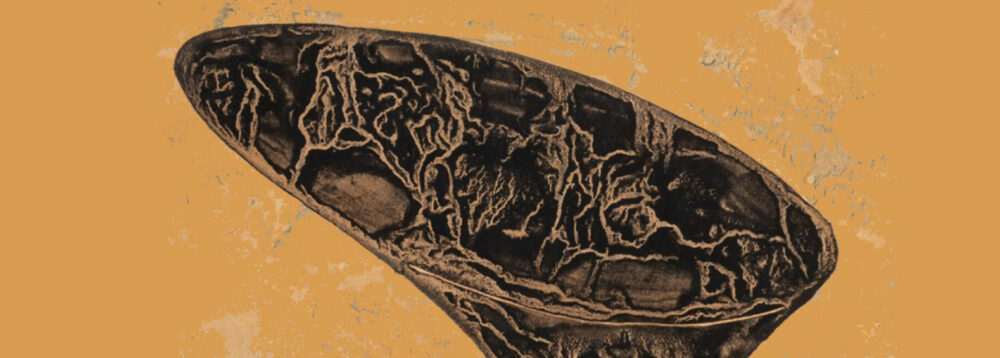It is difficult for a French Caribbean individual to be the brother, the friend, or quite simply the associate or fellow countryman of Fanon. Because, of aIl French Caribbean intellectuals, he is the only one to have acted on his ideas, through his involvement in the Algerian struggle; this was so even if, after tragic and conclusive episodes of what one can rightly call his Algerian agony, the Martinican problem (…which he would no doubt have confronted if he had lived) retains its complete ambiguity.
Édouard Glissant, Le Discours Antillais (1981)
Fill.
In a key section of Le Discours Antillais, Édouard Glissant declares his admiration for Frantz Fanon, whilst also noting that perhaps Fanon’s thought was limited in what it did not say of the situation in Martinique, the Caribbean island where they were both born. Though these cryptic remarks have often been read as signalling a difference between Fanon and Glissant’s respective notions of decolonial activity, in specifically relating Fanon’s ‘Algerian agony’ to the ‘ambiguity’ of ‘the Martinican problem,’ Glissant crucially raises the question of what relation (if any) his own analyses of that problem, in its diverse psychological ramifications, have to the revolutionary psychiatric thought that Fanon formulated during his involvement in the Algerian struggle for independence.
As is becoming increasingly well documented, it was indeed in the context of Algeria that Fanon sought to perform a fundamental ‘transmutation of values’ on the prevalent therapeutic and psychiatric models of his time. Radicalizing the psychoanalytically inflected tenets of Institutional Psychotherapy, during his residency at the Blida-Joinville psychiatric hospital, Fanon not only developed a concrete therapeutic practice that directly addressed the conditions of coloniality, but, in the psychiatric writings now collected in Alienation and Freedom, also provided a ‘functional analysis’ of ‘the problem of North African mental pathology’ that aimed to facilitate that disalienating therapeutic project. Interestingly, though these analyses make sparse reference to psychoanalysis, like Wretched of the Earth, they do relate one of psychoanalysis’s central concepts, the unconscious, to the ‘pathology of atmosphere’ that structured Algerian society and that Fanon’s work more generally sought to counter.
Relatedly, it is the problematic and ambiguous status of the Martinican unconscious that Glissant would examine at length in Le Discours, following his remarks on Fanon. Taking as his starting point the brutal ‘rupture of the slave trade,’ Glissant offers a trenchant and wide-ranging overview of the specific forms of ‘mental disarray’ that continue to plague the ‘collective unconscious’ of Martinican and Caribbean peoples. Holding particular forms of ‘verbal delirium,’ neurosis, and psychosis as expressive of slavery’s destructive legacy, Glissant also insists that an analysis of such disorders is indispensable for apprehending and countering the ongoing structurations of coloniality. Strikingly, though these analyses of the Caribbean unconscious frequently refer to both Fanon and psychoanalysis, like the former, Glissant refuses to take the latter as his ultimate model: ‘It is not a question of arguing that psychiatry (oriented by psychoanalysis) provides the keys to our political problems.’
In this one-day colloquium, organized by Newcastle’s School X with support from the Leverhulme Trust, we invite scholars from across the humanities to reflect on the points of relation and divergence between Fanon and Glissant’s thought on the unconscious. Firmly grounding our discussion in recent developments in critical Black studies, decolonial philosophy, and psychoanalytic theory, we aim to create a locus for considering the continuing relevance of Glissant and Fanon’s ideas on social psychology for resisting and displacing the remainders of coloniality that continue to undergird the present world. Presentations will consider the following (and other) themes:
- The relation between colonialism and the unconscious in Fanon and/or Glissant
- The relation between psychoanalysis, psychiatry, and Fanon and/or Glissant’s account of colonialism
- Le Discours Antillais’ analyses of the unconscious, jouissance, neurosis, delirium, and their relation to the psychoanalytic canon
- Alienation and Freedom’s thought on the unconscious, alienation, psychiatry vis-à-vis Fanon’s earlier work and/or the psychoanalytic canon
- The implicit and/or explicit metapsychological premises and conclusions of Fanon and/or Glissant vis-à-vis historical or contemporary psychoanalytic theory
- Glissant’s reading of Fanon’s decolonial politics in the context of the latter’s psychiatric practice
- Fanon and/or Glissant’s thought on a disalienating political, psychiatric, or psychoanalytic practice
The colloquium will be divided into six panels, each of which will include a 30-minute presentation to be followed by a 20-minute Q&A session.
